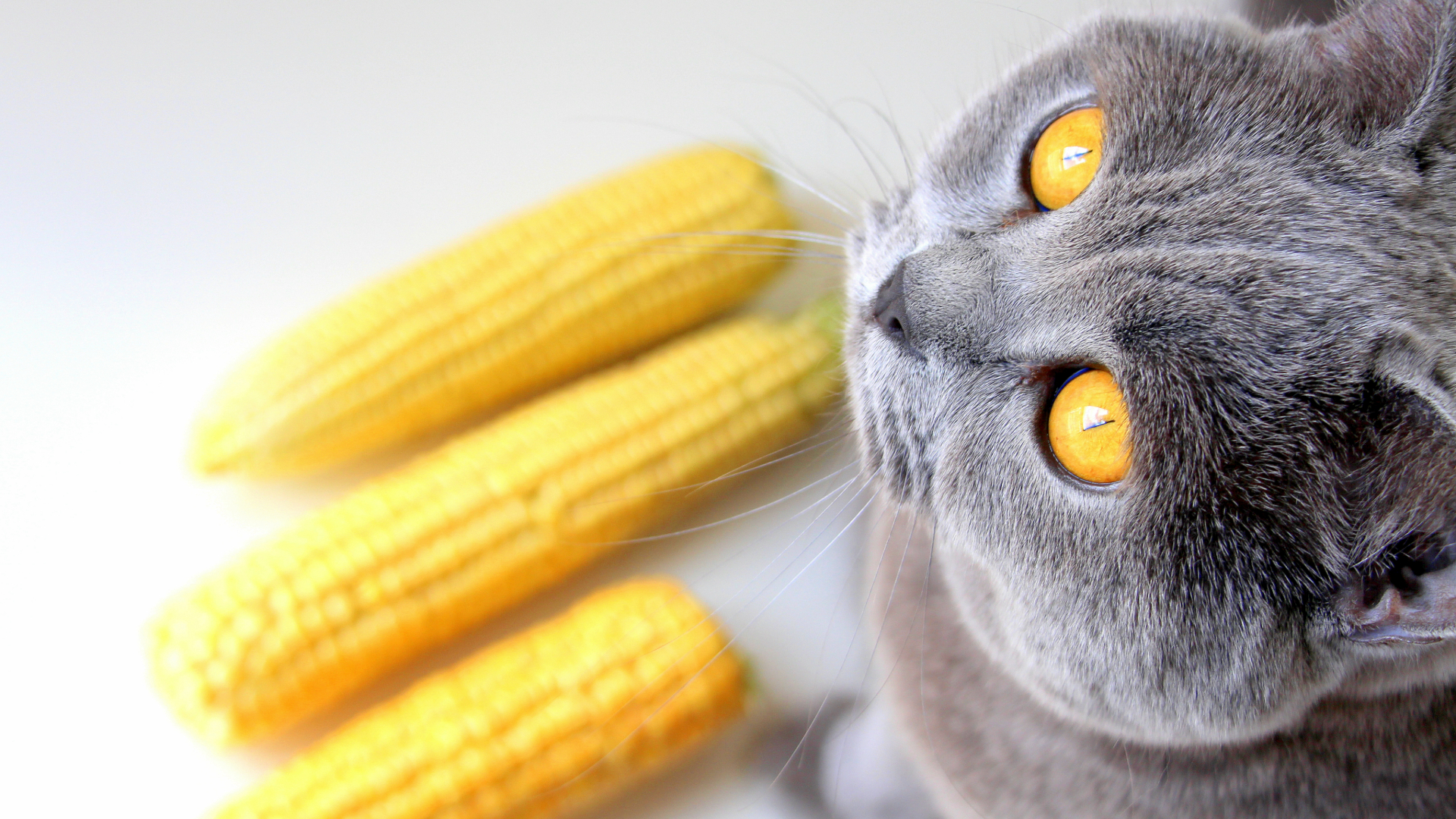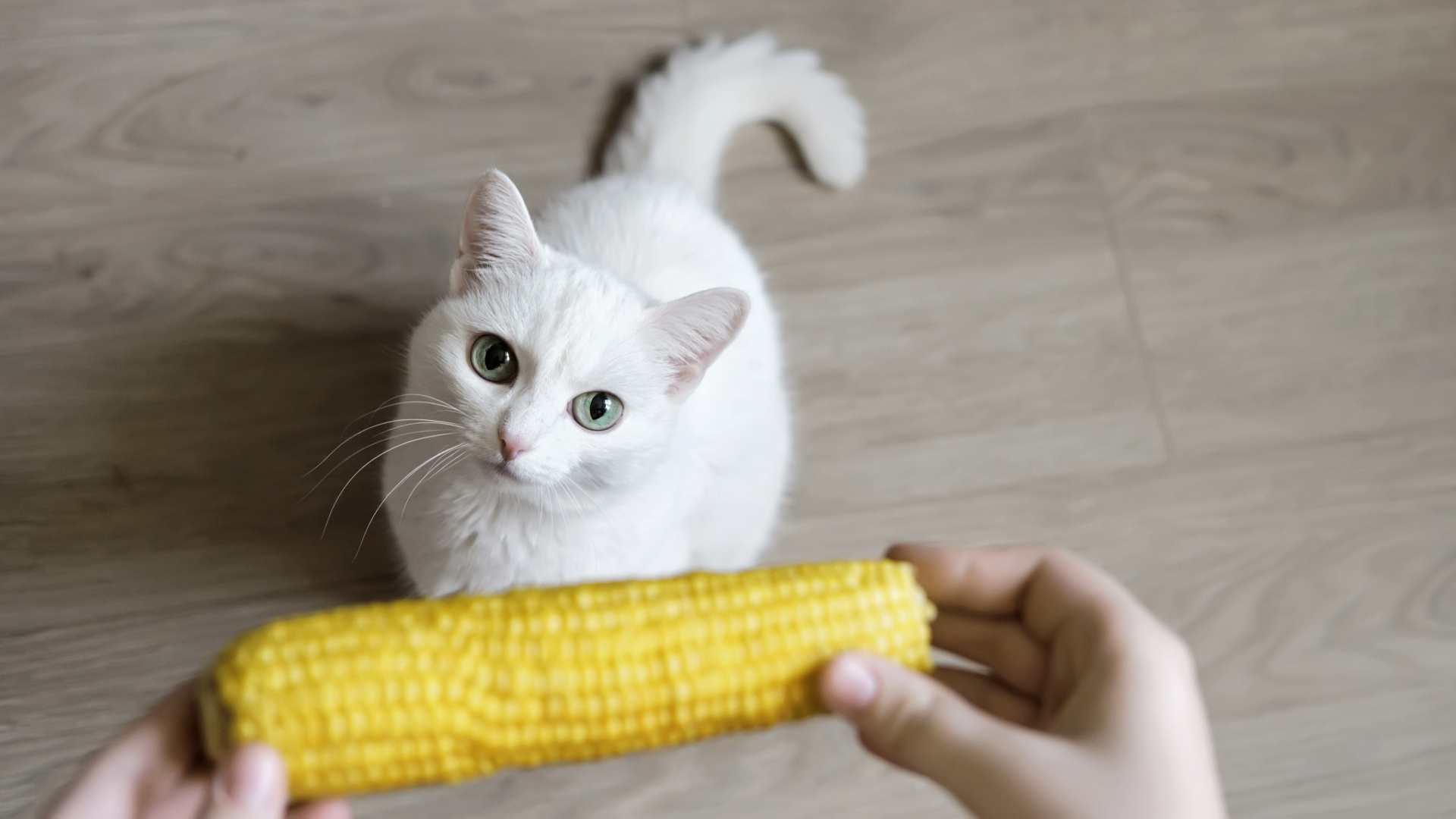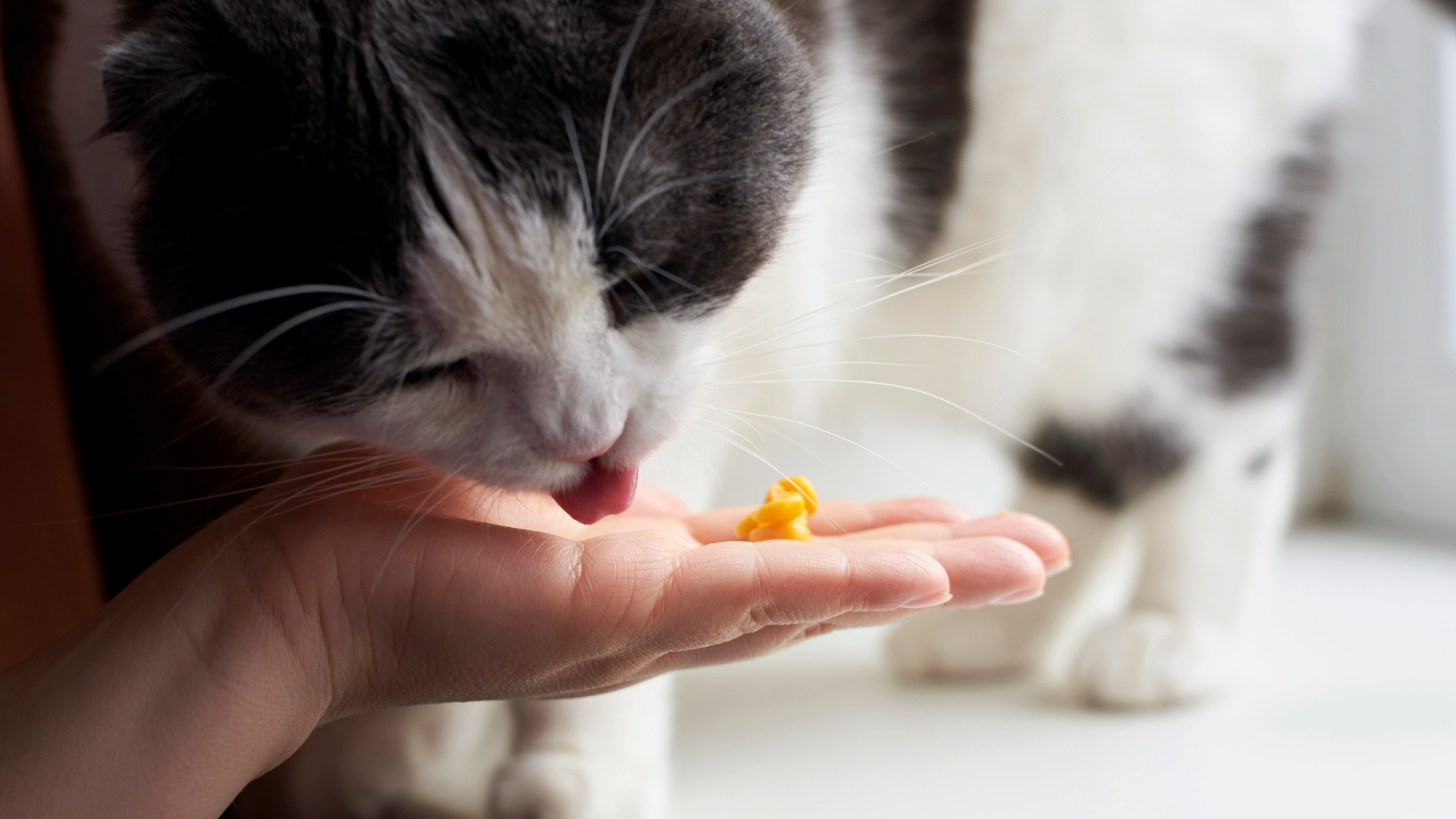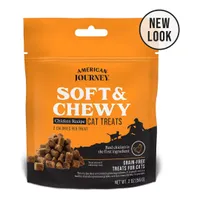Can cats eat corn? What to know before you feed
Our vet answers, 'Can cats eat corn?' Read on to find out whether this snack is a good idea and what you need to be aware of

If you’ve been looking for something new to feed your cat, you might be wondering ‘Can cats eat corn?’ After all, as humans, we like variety in our diet because it’s easy to get bored of eating the same things all the time. So, it’s only natural to imagine your cat could get bored eating their cat food daily too.
However, it’s also possible that you’ve noticed ‘corn’ listed as an ingredient in your cat’s food. But is that okay? Or is corn bad for cats? In this article, we’ll cover whether it’s safe for cats to eat corn, what the risks are, and why some cat foods contain corn as an ingredient.
I’ve been a qualified small animal vet for nearly 14 years, and I’ve spent a lot of my career so far treating cats and helping their owners keep them as healthy as possible. If you want some help choosing the best cat food for your feline family member, check out our guide on the best dry cat food.
Can cats eat corn?
The short answer is that cats can eat corn, in fact, it’s very high in fiber which is beneficial for your cat’s gut health. But that doesn’t mean there aren’t a few risks to be aware of and precautions to take.
In general, small amounts of sweetcorn shouldn’t cause any problems, as long as it’s not given with any other ingredients or seasoning. However, just like sweetcorn is hard for humans to digest, the same is true for cats, so it’s best to stick to small amounts.
Popcorn: It might seem like popcorn is relatively harmless, especially if it’s only a little bit, but since popcorn is usually coated in sugary toppings or seasoned with salt and other savory flavorings, it’s not a good idea to feed your cat popcorn.
Canned corn: Canned corn is safe for cats to eat, as long as it’s sweetcorn in water. Check the label, and as long as there are no extra ingredients or seasonings you can offer a little to your cat.
Get the best advice, tips and top tech for your beloved Pets
Sweetcorn from the cob: It’s really important not to feed your cat corn on the cob because it could cause a gut blockage if they swallow some of the corn cob. Therefore, any corn that you offer your cat should be removed from the cob or husk.

Cornbread: If you’re going to offer human food to your cat, it’s best to keep things simple by offering single ingredients rather than complex recipes containing multiple ingredients. Cornbread often contains dairy products and sugar, so it could cause your cat a stomach upset or make them gain weight. Therefore, it’s best to avoid feeding cornbread to your cat. If you're concerned about your cat's weight, read our helpful guide on healthy weight loss for cats.
Corn chips: Although these are a tasty snack for humans, corn chips are usually cooked in fat and coated in seasonings, which means they have the potential to make your cat unwell or give them an upset stomach.
Corndogs: Corndogs are usually deep fried in oil, which isn’t good for cats. A fatty meal could cause your cat a stomach upset or pancreatitis, and in the longer term they could become obese.
Field corn: While humans don’t like the taste of field corn, it’s safe to eat, and this also applies to your cat. However, it would need to be served without the husk/cob and your cat might not be interested in eating it!
Corn husks: Corn husks are not very digestible and should always be removed before you offer your cat corn in case they cause a gut blockage.
American Journey Chicken Flavor Grain-Free Soft & Chewy Cat Treats
If you want to feed your cat a tasty snack, you're better off sticking to the best cat treats – like these chicken bites by American Journey. Our tester, Rashmi, says her cat loves them and even with his sensitive stomach, tolerates the recipe well.
Is corn digestible for cats?
Corn is really fibrous, and although fiber is great for gut health, it can also make foods hard to digest, and that’s the case with sweetcorn. Corn can be made easier to digest by grinding it into cornmeal, which is the form that is used in many cat food recipes, however, canned corn and corn that’s been cooked and removed from the cob are fine to give in small amounts.
How much corn can cats have?
Whenever you feed your cat something new, it’s best to start with a tiny amount to check it’s not going to upset their stomach or make them ill. Once you know that they can tolerate eating it, you could offer a teaspoon full no more than twice a week. As sweetcorn is quite high in sugar, too much could cause your cat to gain weight.

Is corn in cat food okay?
There’s no need to be concerned about the safety of the corn in cat food – it’s very often used as a filler because it’s so readily available, and it’s safe for your cat to eat. It’s also an important source of fiber. However, it’s best to choose a cat food brand that uses less fillers, favoring more nutritious ingredients.
How to feed corn to cats
If you choose to feed corn to your cat, start with a tiny amount to see that it doesn’t make them unwell. Make sure that the corn that you offer is plain, with no seasonings, cooking fats, or other ingredients that could be toxic. You can cook the corn in the oven if it’s on the cob, but make sure it’s cooled fully before removing the corn and feeding it to your cat.
Corn is safe for cats to eat, but it can be hard to digest. If your cat enjoys corn, you can offer a small amount a couple of times a week, as long as it’s free from seasonings or other ingredients. However, especially if your cat is fussy, there might be other cat-safe human foods that suit them better as an occasional treat.
You might also want to read: Can cats eat strawberries?, is it healthy for cats to eat fish, and surprising foods cats can eat. Or, learn how to make soup for cats
Dr Hannah Godfrey is a small animal vet who graduated from the Royal Veterinary College in 2011 and began work straight away at a busy mixed practice. Initially, she treated all species, but focussed on small animals from 2014. She has a passion for soft tissue surgery, ultrasound, and canine and feline dentistry, having completed additional training in these areas.


